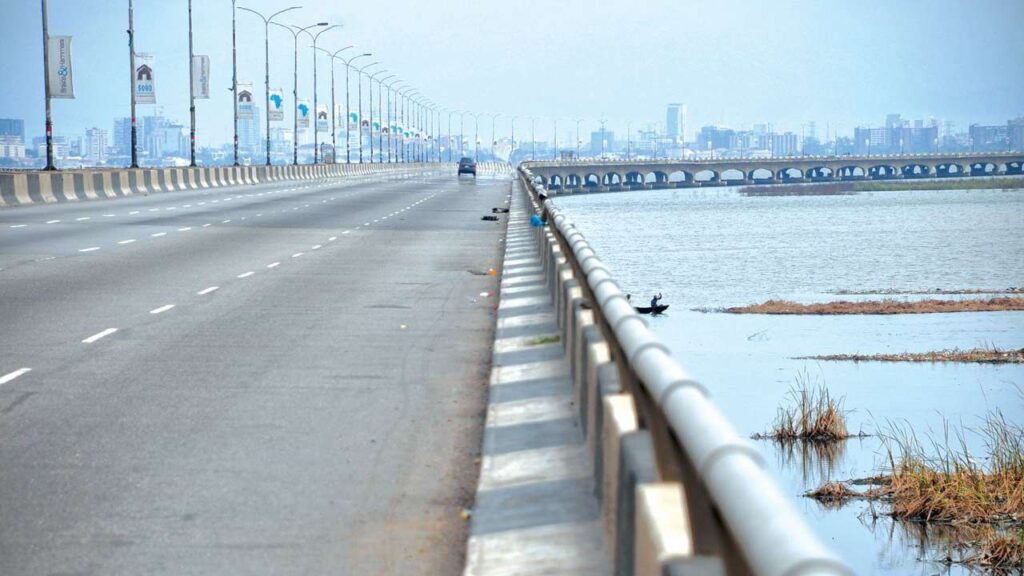Nigeria has seen an upsurge in suicide cases recently, some health experts have blamed the biting economic hardship and hunger.

Lagos – A 65-year-old blind man, Ewenla Ibrahim Adetomiwa, and an 18-year-old mentally unstable teenager were rescued from attempting suicide on the Third Mainland Bridge in Lagos State, South-West Nigeria, police said.
Third Mainland Bridge is the longest of three bridges connecting Lagos Island to the mainland, the others are the Eko and Carter bridges.
It was the longest bridge in Africa until 1996 when the 6th October Bridge located in Cairo was completed. The bridge starts from Oworonshoki which is linked to the Apapa-Oshodi expressway and Lagos-Ibadan expressway, and ends at the Adeniji Adele Interchange on Lagos Island.
However, Adetomiwa, a resident of Ikorodu, Lagos, reportedly took his two children, aged 16 and 12, to the bridge, intending to jump into the lagoon.
He claimed he wanted the government to care for his children after his death. A Good Samaritan alerted the police, who swiftly intervened and rescued the family.
“On 04/09/2024, at 14:30 hours, we received a distress call about a man attempting suicide with his children. Our team rescued them and took them to the station,” said Benjamin Hundeyin, spokesman for the Lagos State Police Command.
In a separate incident, an 18-year-old mentally unstable resident of 1004 Estate was prevented from jumping into the lagoon by operatives from Yaba Police Station.
The police handed him over to his family for immediate treatment.
Nigeria has seen an upsurge in suicide cases recently, some health experts have blamed the biting economic hardship and hunger.
Nigeria is facing its worst economic crisis in decades, with skyrocketing inflation, a national currency in free-fall and millions of people struggling to buy food. Only two years ago Africa’s biggest economy, Nigeria is projected to drop to fourth place this year.
The pain is widespread. Unions strike to protest salaries of around $20 a month. People die in stampedes, desperate for free sacks of rice. Hospitals are overrun with women wracked by spasms from calcium deficiencies.
Although President Bola Tinubu increased the minimum wage — after strike action and months-long negotiations with labour unions — from N30,000 to N70,000, his government has increased spending for officials at a time of nationwide starvation.
For workers earning the new N70,000, or $43, per month minimum wage, capricious inflation and naira value have inflicted too much damage for the changes to make any difference in their lives.
The crisis is largely believed to be rooted in two major changes implemented by Mr Tinubu, elected 14 months ago: the partial removal of fuel subsidies and the floating of the currency, which together have caused major price rises.
Earlier in August, Amnesty International accused Nigerian security forces of killing at least 21 protesters during a week of economic hardship protests.
Police and other security agencies clamped down on protests after thousands of people joined rallies against government policies and the high cost of living from August 1st to 10th.
Security forces denied responsibility for deaths during the protests.
A nation of entrepreneurs, Nigeria’s more than 200 million citizens are skilled at managing in tough circumstances, without the services states usually provide. They generate their own electricity and source their own water. They take up arms and defend their communities when the armed forces cannot. They negotiate with armed kidnappers when family members are abducted.
But right now, their resourcefulness is being stretched to the limit.
